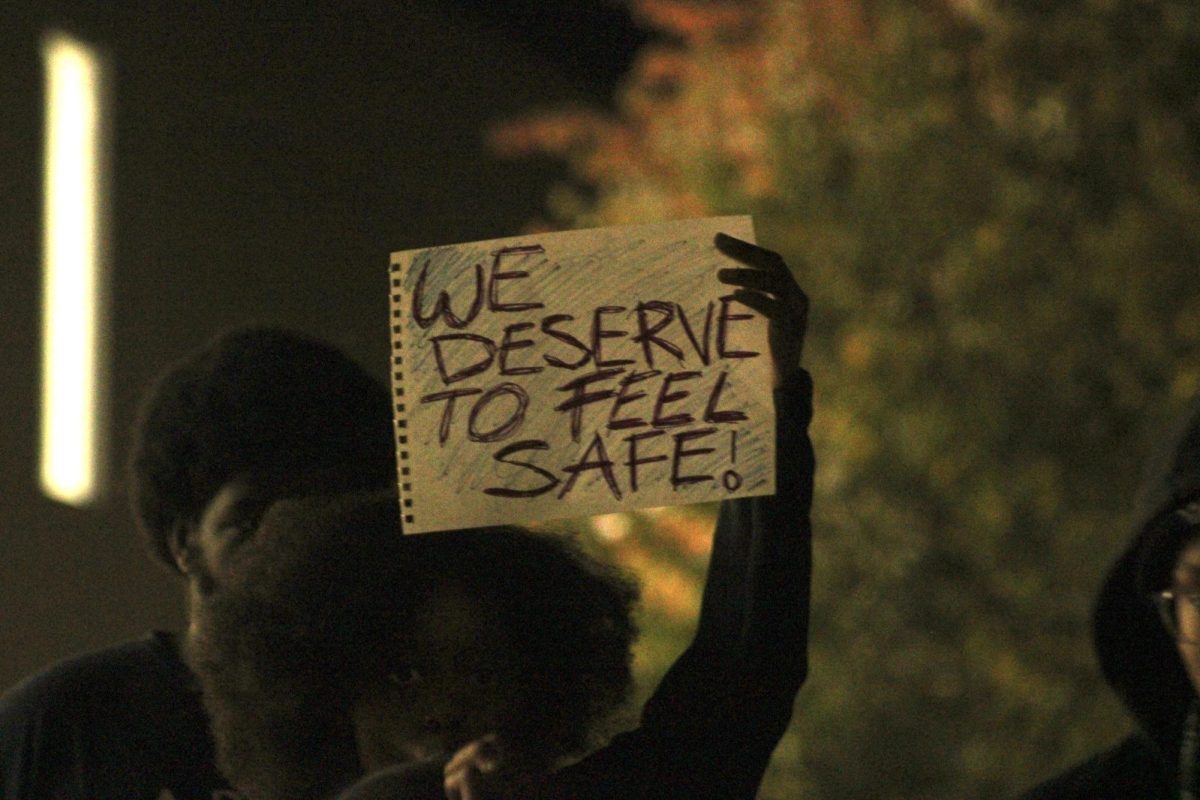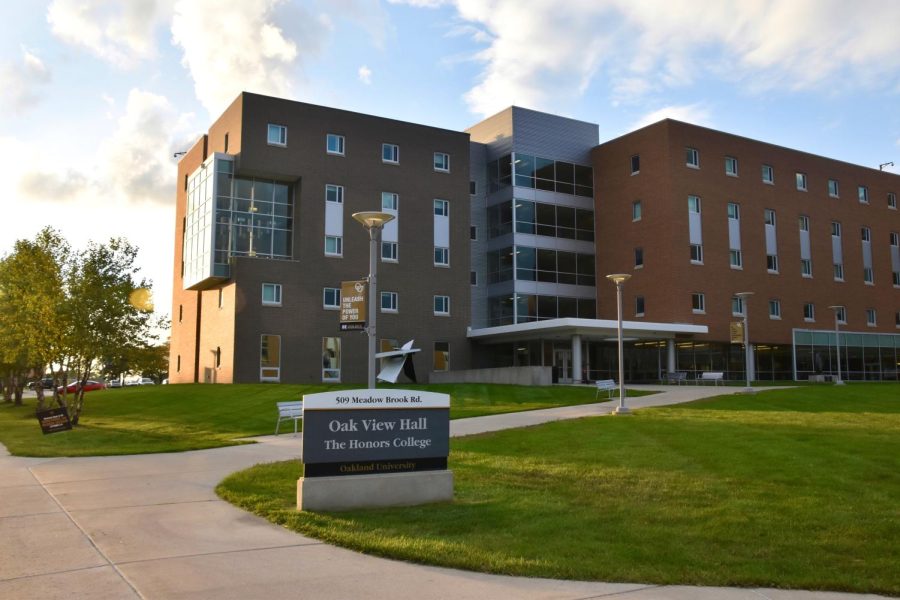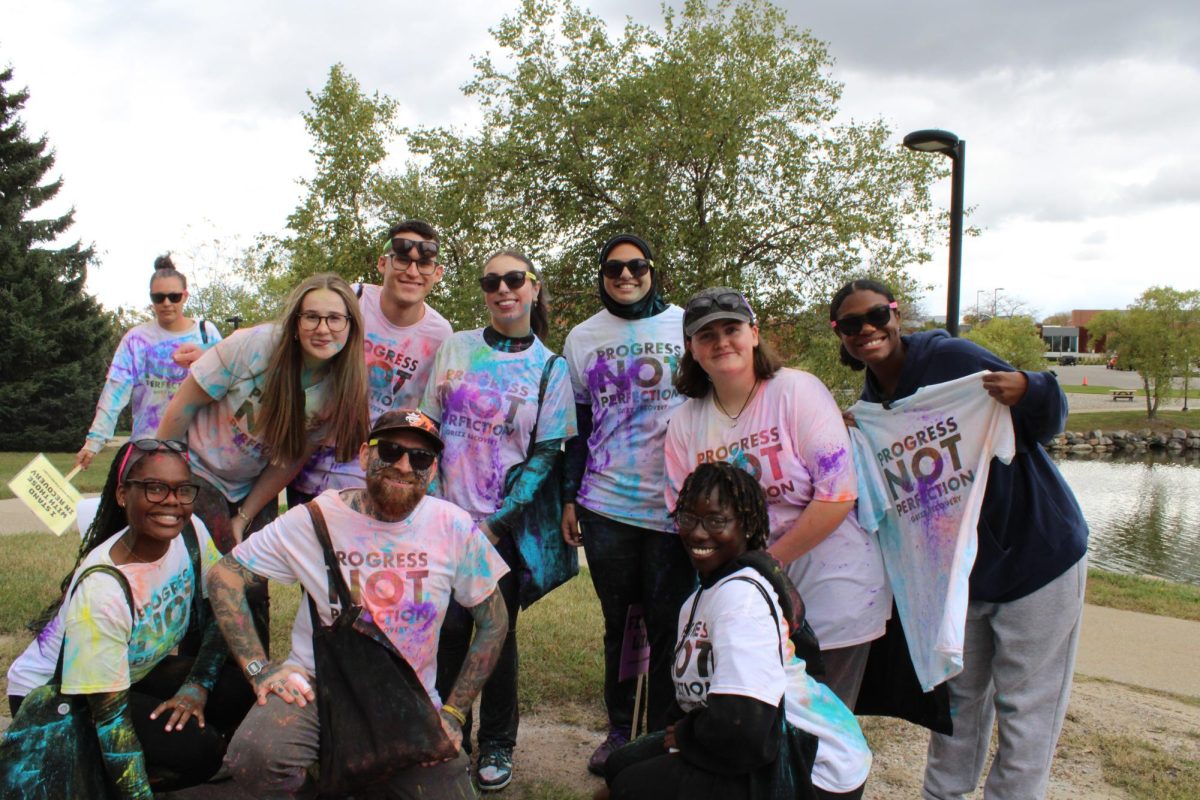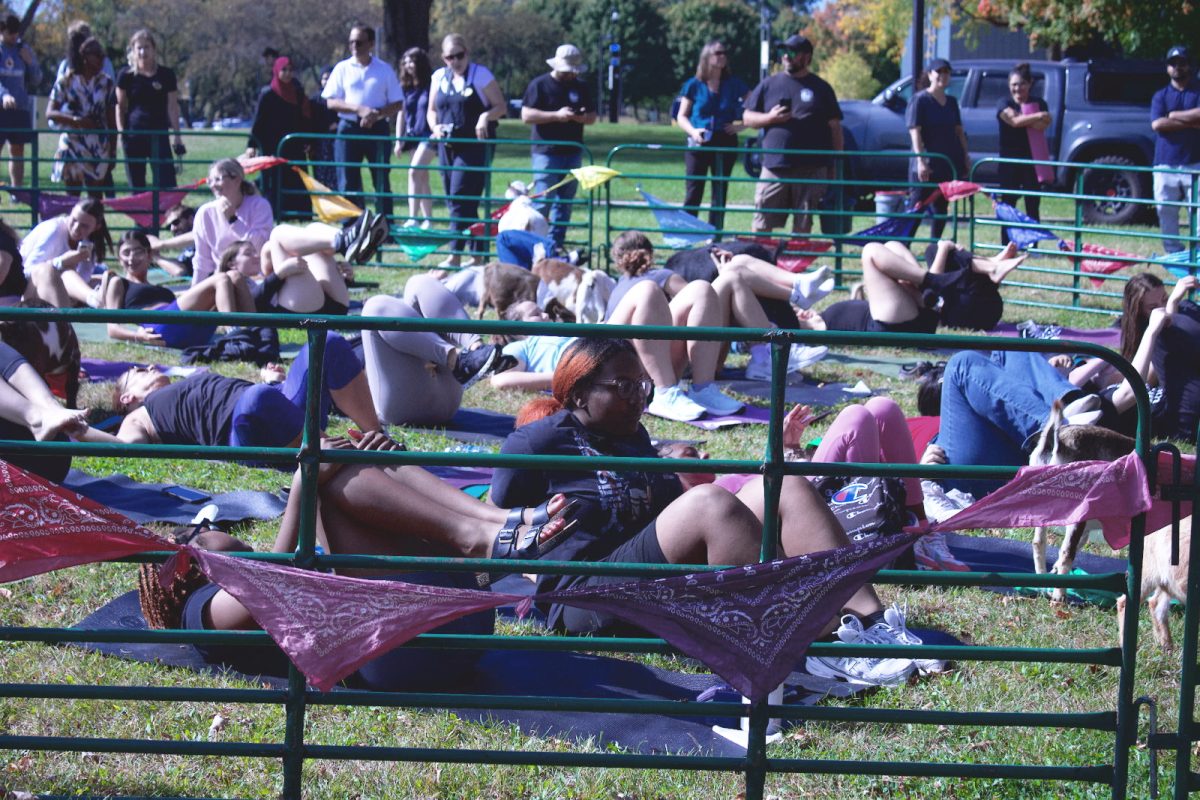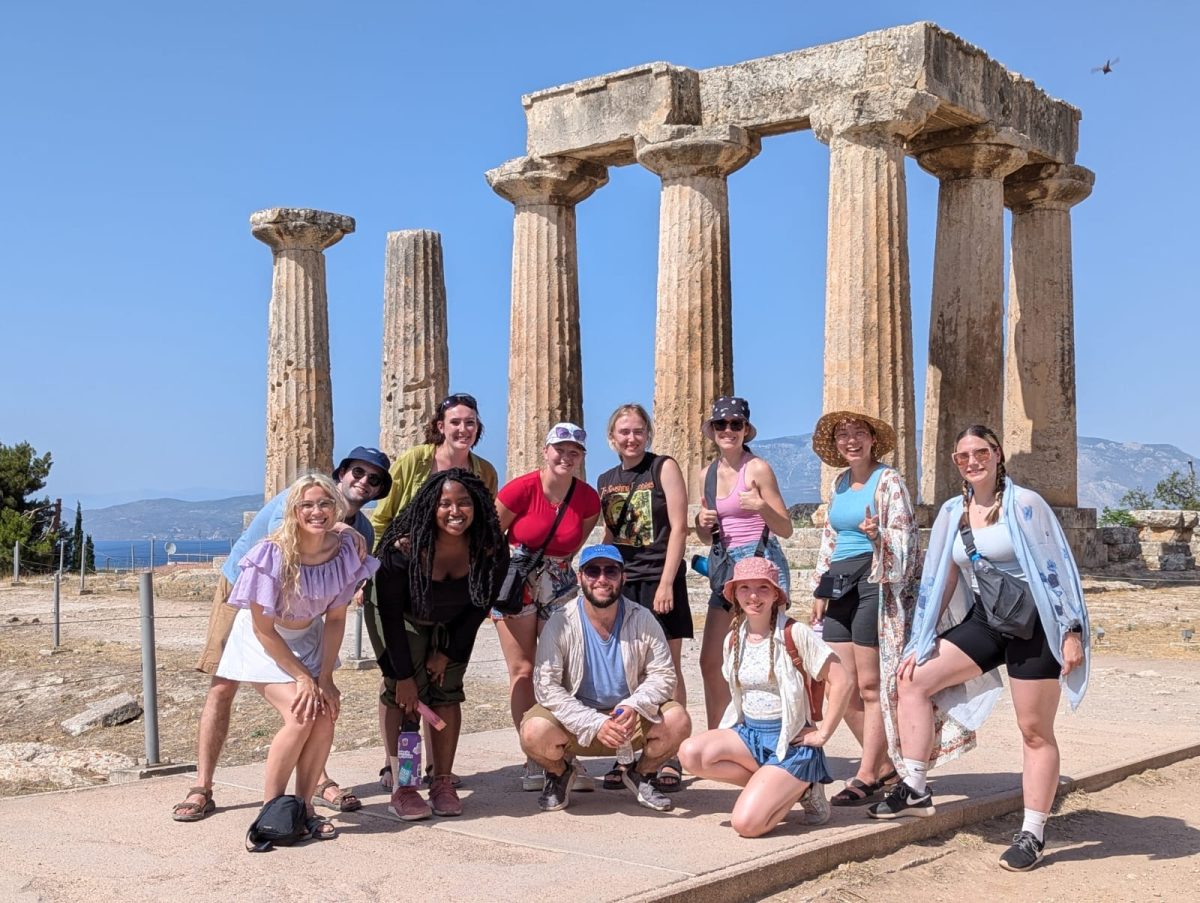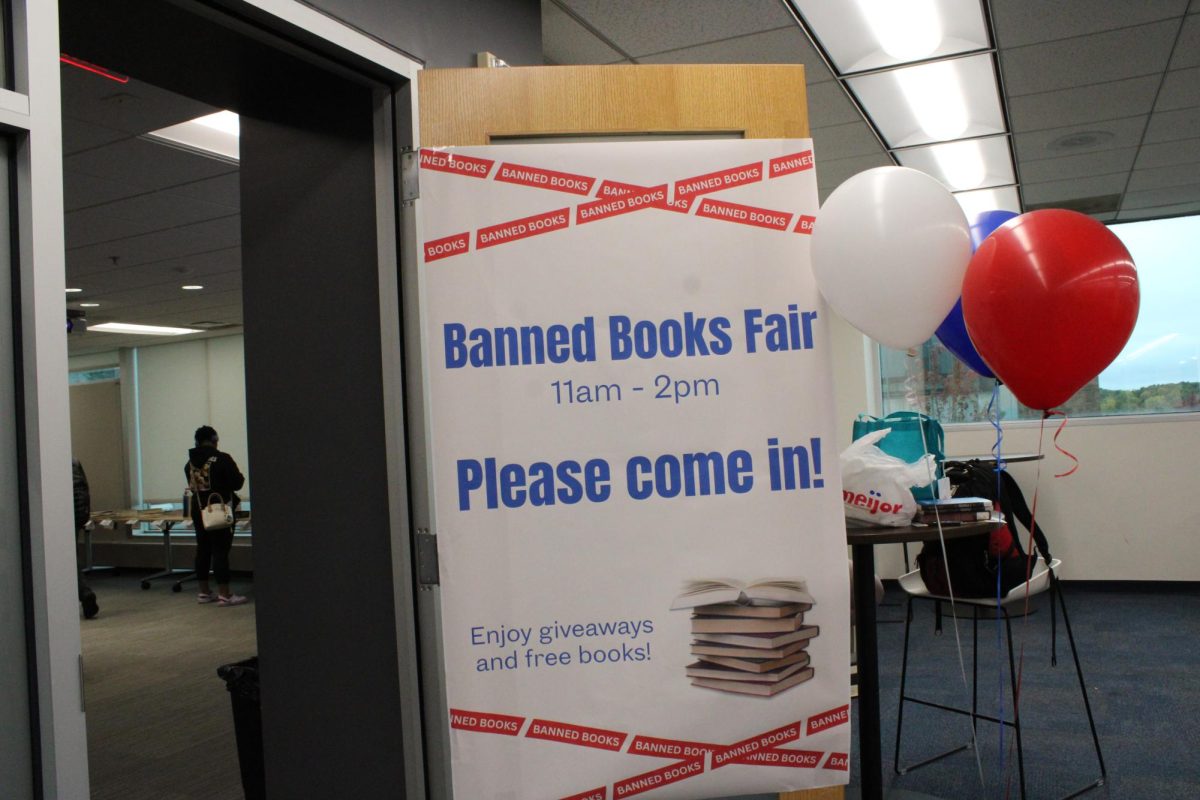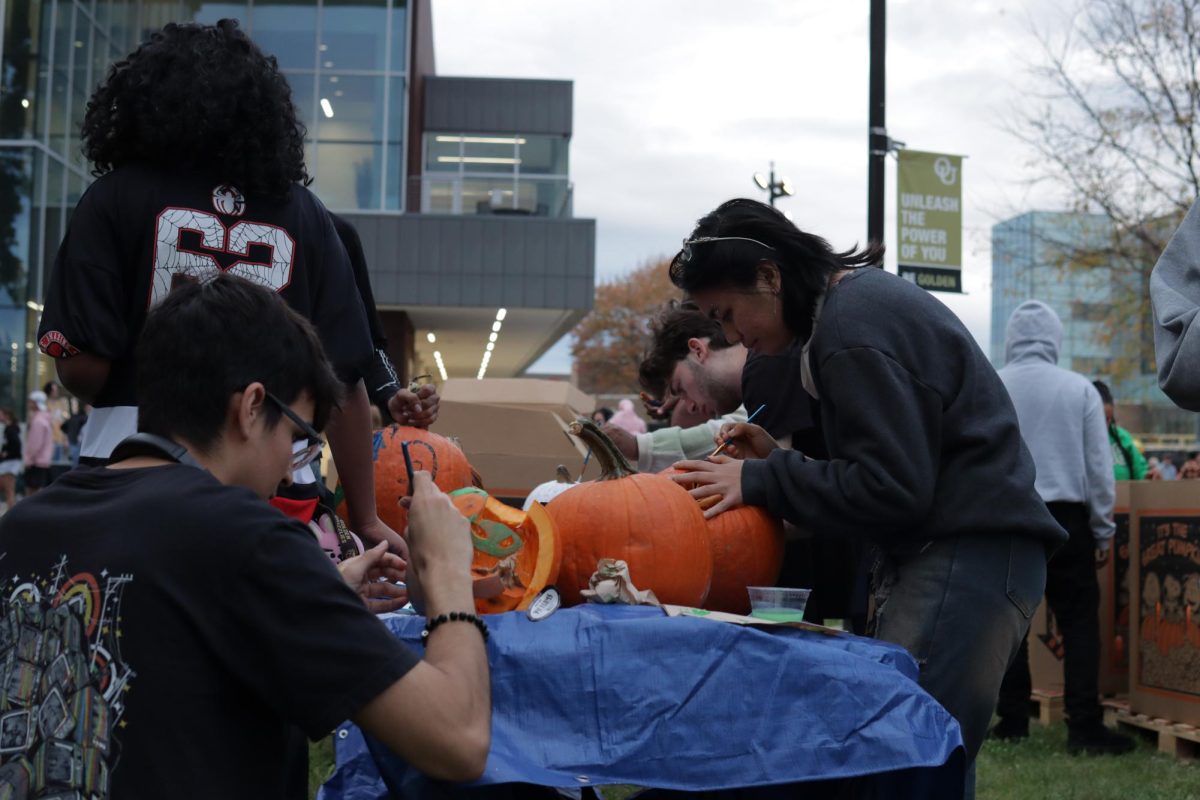Oakland University students gathered on Sept. 16, for a late-night protest in response to the on-campus vigil for conservative activist Charlie Kirk. Feeling unsafe on campus, the antagonization of the trans community and freedom of speech were some of the topics discussed at the gathering.
Called to be present at 9 p.m. by word of mouth and social media, around 50 students met at Elliott Tower ready for a protest. After half an hour waiting for the event organizers and speakers to arrive, the conversation started with a question; “Why are we mad?”
For Aleecia Borja-Jones, a student at OU, the catalyst for her anger was the political undertones of Kirk’s vigil.
“I think the vigil wasn’t the best idea, the things Kirk advocated for while he was alive didn’t align with a lot of the students’ morals,” Borja-Jones said. “The police presence felt out of hand… I noticed they were kind of defending the people there in support of Charlie Kirk and antagonizing the people there silently protesting.”
As the benches by the tower became a podium for students to voice their grievances, the protest focused on venting fear and anger. Protesters made it clear that the opposition was against harmful rhetoric and not against specific individuals.
“We are just angry that this vigil and memorial happened,” Makenzie Maxwell, a student, said. “As we walk outside, we feel discomfort, we feel anger, we feel unsettled, and we spoke up there to say that we shouldn’t have to. We are students here. We pay to go here. We’re equal, and he shouldn’t be celebrated for the hateful things that he said.”
As students took turns to discuss matters affecting their communities and global events, questions about empathy were raised. Students questioned why there were no vigils for victims of police brutality, transphobic hate crimes or genocide. They took a moment to name martyrs and community members victims of political violence.
“We’re not saying that his life should have been taken, that is not what we are fighting for,” Savannah Lopez, a student, said. “We are protesting because it’s unsettling to know that this man says so many hateful things about so many different communities, trans people, black people — that we were disqualified.”
Conversations jumped between respect and empathy amongst “No justice no peace” chants reminiscent of long-lived global protests. However, students encouraged one another to “walk with their heads high on campus” and to foster a sense of safety by relying on one another.
“I am sick of feeling like a rhetoric to be used and something to point everything towards when something bad happens,” Maddy, a student who wished her last name to remain anonymous, said. “Try and get involved in what we’re doing on campus, because it’s very important that we make it clear that we value our lives and we value the lives of our peers, and that we don’t stand for the villainization that [others] cause.”
Although not many other community members heard the late night protest, the Dean of Students office said they have received complaints and heard student concerns regarding Kirk’s vigil.
“Students have come to our office and talked to us about issues they had with the event, students have submitted reports in regards to some behaviors that took place at the event,” Mike Wadsworth, assistant vice-president and Dean of Students, said. “We encourage students to continue reaching out to us and other areas of support that they have on campus.”
As students returned to their residence halls and homes, speakers encouraged them to voice their concerns, stay informed and keep fostering a community.
“What happened [on] Tuesday is important because with situations like that it can make people who don’t agree feel singled out or attacked when it really isn’t the case,” Borja-Jones said. “There were a lot of people speaking that I heard a lot of great things from and it definitely made me feel more seen and I was grateful to be around other people who agree with my morals.”



